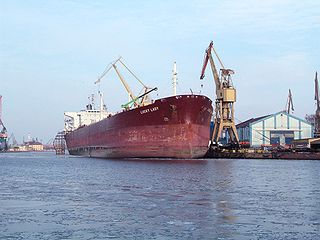At common law, damages are a remedy in the form of a monetary award to be paid to a claimant as compensation for loss or injury. To warrant the award, the claimant must show that a breach of duty has caused foreseeable loss. To be recognised at law, the loss must involve damage to property, or mental or physical injury; pure economic loss is rarely recognised for the award of damages.
Negligence is a failure to exercise appropriate and/or ethical ruled care expected to be exercised amongst specified circumstances. The area of tort law known as negligence involves harm caused by failing to act as a form of carelessness possibly with extenuating circumstances. The core concept of negligence is that people should exercise reasonable care in their actions, by taking account of the potential harm that they might foreseeably cause to other people or property.
Hadley & Anor v Baxendale& Ors [1854] EWHC J70 is a leading English contract law case. It sets the leading rule to determine consequential damages from a breach of contract: a breaching party is liable for all losses that the contracting parties should have foreseen. However, if the other party has special knowledge that the party-in-breach does not, the breaching party is only liable for the losses that he could have foreseen on the information available to them.

In common law jurisdictions, a misrepresentation is a false or misleading statement of fact made during negotiations by one party to another, the statement then inducing that other party to enter into a contract. The misled party may normally rescind the contract, and sometimes may be awarded damages as well.
Fundamental breach of contract, is a controversial concept within the common law of contract. The doctrine was, in particular, nurtured by Lord Denning, Master of the Rolls from 1962 to 1982, but it did not find favour with the House of Lords.
Consequential damages, otherwise known as special damages, are damages that can be proven to have occurred because of the failure of one party to meet a contractual obligation, a breach of contract. From a legal standpoint, an enforceable contract is present when it is: expressed by a valid offer and acceptance, has adequate consideration, mutual assent, capacity, and legality. Consequential damages go beyond the contract itself and into the actions that arise from the failure to fulfill. The type of claim giving rise to the damages, such as whether it is a breach of contract action or tort claim, can affect the rules or calculations associated with a given type of damages. For example, consequential damages are a potential type of expectation damages that arise in contract law.
Causation is the "causal relationship between the defendant's conduct and end result". In other words, causation provides a means of connecting conduct with a resulting effect, typically an injury. In criminal law, it is defined as the actus reus from which the specific injury or other effect arose and is combined with mens rea to comprise the elements of guilt. Causation only applies where a result has been achieved and therefore is immaterial with regard to inchoate offenses.
Causation in English law concerns the legal tests of remoteness, causation and foreseeability in the tort of negligence. It is also relevant for English criminal law and English contract law.
In English law, remoteness between a cause of action and the loss or damage sustained as a result is addressed through a set of rules in both tort and contract, which limit the amount of compensatory damages available for a wrong.

Expectation damages are damages recoverable from a breach of contract by the non-breaching party. An award of expectation damages protects the injured party's interest in realising the value of the expectancy that was created by the promise of the other party. Thus, the impact of the breach on the promisee is to be effectively "undone" with the award of expectation damages.

Overseas Tankship (UK) Ltd v Morts Dock and Engineering Co Ltd, commonly known as Wagon Mound , is a landmark tort law case, which imposed a remoteness rule for causation in negligence. The Privy Council held that a party can be held liable only for loss that was reasonably foreseeable. Contributory negligence on the part of the dock owners was also relevant in the decision, and was essential to the outcome, although not central to this case's legal significance.

English contract law is the body of law that regulates legally binding agreements in England and Wales. With its roots in the lex mercatoria and the activism of the judiciary during the industrial revolution, it shares a heritage with countries across the Commonwealth, from membership in the European Union, continuing membership in Unidroit, and to a lesser extent the United States. Any agreement that is enforceable in court is a contract. A contract is a voluntary obligation, contrasting to the duty to not violate others rights in tort or unjust enrichment. English law places a high value on ensuring people have truly consented to the deals that bind them in court, so long as they comply with statutory and human rights.

Royscot Trust Ltd v Rogerson[1991] EWCA Civ 12 is an English contract law case on misrepresentation. It examines the Misrepresentation Act 1967 and addresses the extent of damages available under s 2(1) for negligent misrepresentation.
South Australia Asset Management Corporation v York Montague Ltd and Banque Bruxelles Lambert SA v Eagle Star Insurance Co Ltd [1996] UKHL 10 is a joined English contract law case on causation and remoteness of damage. It arose out of the property crash in the early 1990s, whereby banks were suing valuers for overpricing houses in order to recover the lost market value. Owners themselves often had little or no money, since they had fallen victim to negative equity, so mortgage lenders would pursue a valuer instead to recover some losses. The legal principle arising from the case is often referred to as the "SAAMCO principle".

Golden Strait Corporation v Nippon Yusen Kubishika Kaisha[2007] UKHL 12, also known as The Golden Victory, is an English contract law case, concerning the measure of damages for breach of contract.
Jackson v Royal Bank of Scotland [2005] UKHL 3 is an English contract law case, which concerns remoteness of damage.

Parsons (Livestock) Ltd v Uttley Ingham & Co Ltd [1978] QB 791 is an English contract law case, concerning remoteness of damage. In it, the majority held that losses for breach of contract are recoverable if the type or kind of loss is a likely result of the breach of contract. Lord Denning MR, dissenting on the reasoning, held that a distinction should be drawn between losses for physical damage and economic losses.

C Czarnikow Ltd v Koufos or The Heron II [1969] 1 AC 350 is an English contract law case, concerning remoteness of damage. The House of Lords held that the "remoteness" test, as a limit to liability, is, in contract, more restrictive than it is in tort.
In English law, implied terms are default rules for contracts on points where the terms which contracting parties expressly choose are silent, or mandatory rules which operate to override terms that the parties may have themselves chosen. The purpose of implied terms is often to supplement a contractual agreement in the interest of making the deal effective for the purpose of business, to achieve fairness between the parties or to relieve hardship.

AIB Group (UK) plc v Mark Redler & Co Solicitors [2014] UKSC 58 is an English trust law case, concerning the applicable principles of causation for a breach of trust. It held that a "but for" test of causation applies for equitable compensation.







